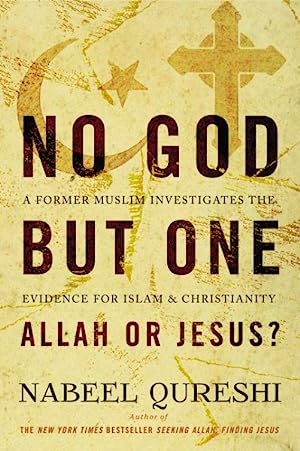Can we know whether Islam or Christianity is true?
Once Qureshi has highlighted the differences between Islam and Christianity, he begins to consider the main claims that each faith makes; three from Christianity and two from Islam.
- Did Jesus die on the cross?
- Did Jesus rise from the dead?
- Did Jesus claim to be God?
- Is Muhammad a prophet of God?
- Is the Qur’an the word of God?
These five questions will be incredibly important for each Muslim who is considering Christianity. Muslims are taught that the answer to the first three questions is no, and to the final two, yes. Christianity teaches the opposite. Through Qureshi’s in-depth analysis of each of these questions, we learn more about both Islam and Christianity and how we can help our Muslim friends as they consider these questions for themselves.
Is the truth worth dying for?
Qureshi concludes this book by pondering whether the truth is worth dying for. He certainly thought so, receiving many death threats after putting his faith in Christ.
Similarly to the style of his first book, Qureshi bookends No God But One with the story of Fatima, a seeker from Saudi Arabia. For both Fatima and Nabeel, the truth of the gospel was too compelling to ignore, and they both had to consider whether it was worth sacrificing everything for. The conclusion of No God But One is a beautiful reminder of the sacrifice of Jesus and how His death and resurrection changes everything.
No God But One is a helpful tool for anyone walking with Muslim friends on their journey to faith. As Qureshi states at the beginning, this book is not for Christians who enjoy criticising Islam or Muslims who want to argue but do not want to learn. It is for people like Fatima, and Christians who support them, who need the answers to the three questions that we began with.





